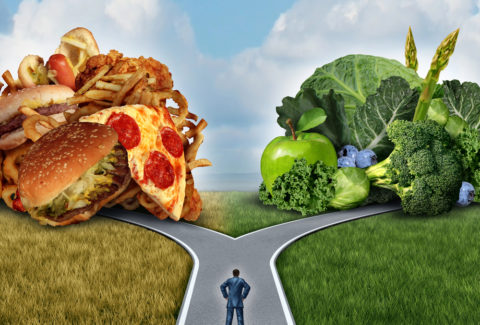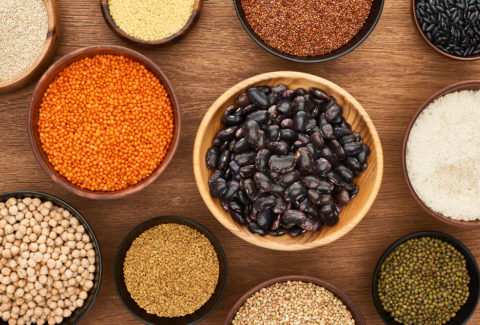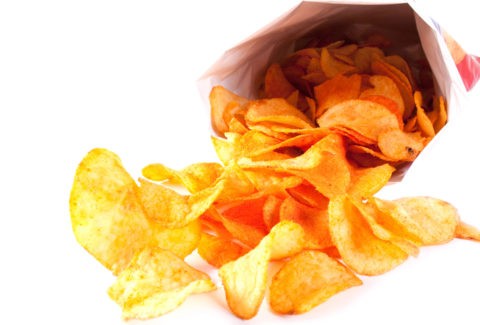The Sweet Liberation: Less Sugar, Fewer Cravings
In a world dominated by sugary temptations, it might seem counterintuitive to believe that consuming less sugar can lead to a reduced desire for it. However, it’s true: “The less sugar you eat, the less sugar you eat.” In this article, we’ll explore the science behind this concept and the benefits of cutting back on sugar consumption.
The Sugar-Consumption Feedback Loop
Initial Sugar Consumption:
It starts with our first taste of something sweet, be it a candy bar, a sugary drink, or a dessert. Sugar, particularly refined sugar, triggers the brain’s reward system by releasing dopamine, which creates a pleasurable sensation. This initial “sugar high” encourages us to eat more sweets.[1]
The Cycle of Overconsumption:
When we indulge in sugar regularly, our taste buds become accustomed to its intense sweetness. This prompts us to seek even sweeter foods to satisfy our cravings, leading to a cycle of overconsumption.[2]
The Shift Towards Less Sugar:
When we make a conscious choice to reduce our sugar intake, our taste buds adjust over time. Foods that were once perceived as not sweet enough become satisfying, and our cravings for extremely sweet treats gradually diminish.[3]
Breaking the Sugar Habit
- Reduce Added Sugars: Begin by identifying and limiting added sugars in your diet. This includes sugary snacks, sweetened beverages, and processed foods.
- Opt for Natural Sweetness: Replace sugary snacks with naturally sweet options like fresh fruits, dried fruits, and unsweetened yogurt.
- Read Food Labels: Pay attention to food labels and ingredient lists. Sugar can go by various names, including sucrose, fructose, and high fructose corn syrup.
- Gradual Reduction: Rather than going cold turkey, gradually reduce your sugar intake. This approach is more sustainable and can help ease the transition.
The Benefits of Less Sugar
Weight Management:
Lower sugar intake often leads to reduced calorie consumption, which can contribute to weight loss and weight maintenance.[4]
Improved Health:
Reduced sugar intake is associated with a lower risk of obesity, type 2 diabetes, heart disease, and dental problems.[5]
Steadier Energy Levels:
Fewer sugar spikes and crashes mean more stable energy levels throughout the day.[6]
Better Skin:
Some individuals experience clearer skin and reduced acne breakouts when they consume less sugar.[7]
Enhanced Taste Buds:
Over time, your taste buds will become more sensitive to the natural sweetness of foods, making healthier options more appealing.[8]
“The less sugar you eat, the less sugar you eat” might initially seem like a paradox, but it’s a reflection of the remarkable adaptability of our taste buds. By choosing to reduce your sugar consumption, you can break free from the cycle of sugar addiction and find pleasure in the natural sweetness of foods. This transition can lead to a host of health benefits, helping you live a happier, healthier life with fewer sugar cravings and fewer trips to the candy aisle.
Explore transformative self-study certificate courses:
- Behavioral Modifications: Master strategies for guiding patients systematically towards success.
- Cognitive Behavioral Therapy: Gain insights into brain functioning, connecting thoughts, feelings, and behaviors, applied to mindful eating.
- New Psychotherapy: Equip yourself to help clients identify and overcome blocks hindering desired changes around eating.
Imagine patients developing tools for a healthy relationship with sugar. The impact is immeasurable.
[1] Olszewski, Pawel K., et al. “Excessive consumption of sugar: an insatiable drive for reward.” Current nutrition reports 8 (2019): 120-128.
[2] Razzaque, Mohammed S. “Overconsumption of sugar-sweetened beverages: why is it difficult to control?.” Journal of Population Therapeutics and Clinical Pharmacology 27.2 (2020): e51-e57.
[3] Lee, Allen A., and Chung Owyang. “Sugars, sweet taste receptors, and brain responses.” Molecular nutrition: Carbohydrates (2019): 265-283.
[4] Warshaw, Hope, and Steven V. Edelman. “Practical strategies to help reduce added sugars consumption to support glycemic and weight management goals.” Clinical Diabetes 39.1 (2021): 45-56.
[5] Evans, Charlotte Elizabeth Louise. “Sugars and health: a review of current evidence and future policy.” Proceedings of the Nutrition Society 76.3 (2017): 400-407.
[6] Schiltz, Fritz, and Kristof De Witte. “Sugar rush or sugar crash? Experimental evidence on the impact of sugary drinks in the classroom.” Health Economics 31.1 (2022): 215-232.
[7] Ma, Xiao, et al. “Excessive intake of sugar: An accomplice of inflammation.” Frontiers in immunology 13 (2022): 988481.
[8] Spector, Alan C., and Susan P. Travers. “Taste buds and gustatory transduction: a functional perspective.” Oxford Research Encyclopedia of Neuroscience. 2021.









